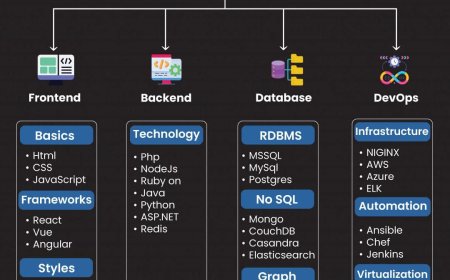What due diligence means in real estate and why it matters
Learn what due diligence means in real estate and why it’s crucial before buying property. Explore key checks, benefits, and steps for smart investing.

When it comes to real estate, whether you're buying your first home or investing in a commercial space, due diligence is a crucial step you can't afford to skip. Its your responsibility to verify all facts about the property to ensure you're making a smart, secure, and legal purchase. This process helps you uncover any hidden risks, legal issues, or future liabilities.
Lets break down what due diligence means in real estate and why it matters more than most people think.
What is Due Diligence in Real Estate?
In simple terms, due diligence refers to the investigation and research a buyer performs before finalizing a property transaction. This involves reviewing legal documents, inspecting the physical condition of the property, confirming ownership, understanding zoning laws, and checking for outstanding dues or legal disputes.
Think of it as a safety check before committing your money. Just like youd research a cars history before buying it, due diligence ensures the property is what it claims to befree from fraud, financial baggage, or hidden flaws.
Why Does Due Diligence Matter?
Real estate is a high-value investment. A wrong decision can cost you not just money, but also time, mental peace, and legal troubles. Here's why due diligence is essential:
-
Legal Clarity: Ensures the property has a clear title and no legal disputes.
-
Financial Safety: Helps you avoid unexpected costs such as unpaid taxes, loans, or society dues.
-
Structural Assurance: Physical inspections reveal construction issues or maintenance needs.
-
Market Insight: Assists in understanding whether the property is worth the quoted price.
-
Compliance Check: Confirms that the property meets all local and state regulations.
Skipping due diligence is like signing a contract blindfoldedyou dont know what you're getting into.
Key Components of Real Estate Due Diligence
1. Title Verification
Ensure the seller is the rightful owner and the title is free of any claims or encumbrances. Request a copy of the sale deed and have it reviewed by a legal expert. A clear title is the foundation of a secure deal.
2. Land Use and Zoning Laws
Check if the property is legally classified for your intended use (residential, commercial, agricultural, etc.). Violating zoning laws can result in penalties or even demolition orders.
3. Encumbrance Certificate
This document shows whether the property is free from loans, mortgages, or other financial liabilities. Obtain it from the sub-registrars office and review the last 1230 years of records if available.
4. Building Approvals and Permits
Ensure the builder has obtained all necessary approvalslike building plans, environmental clearances, and occupancy certificates. Lack of these can delay possession or cause legal issues.
5. Tax Records and Utility Bills
Check that the seller has paid all property taxes, electricity bills, water charges, and society maintenance fees. Unpaid dues may become your burden after the purchase.
6. Physical Inspection
Hire a professional to inspect the structure, plumbing, electrical work, and drainage. Even new properties can have hidden construction defects that are costly to repair later.
7. RERA Registration (India-specific)
If buying from a builder, check whether the project is registered with RERA (Real Estate Regulatory Authority). This gives you legal protection and transparency.
Due Diligence for Different Property Types
For Residential Property
Focus on neighborhood evaluation, future development plans, safety, and builder reputation. Ensure that all amenities promised in brochures are included in the legal documents.
For Commercial Property
In addition to the basics, study the lease agreements, foot traffic, location advantage, and compliance with commercial laws.
For Land Purchases
Land deals carry higher risks. Validate land records, check conversion certificates (for agricultural to non-agricultural use), and inspect boundaries physically.
Who Can Help with Due Diligence?
You dont have to do it all alone. Due diligence is best handled with professional help from:
-
Real Estate Lawyers
-
Property Surveyors
-
Chartered Accountants
-
Title Search Agencies
-
Civil Engineers (for inspections)
Hiring professionals might cost a bit, but its a small price for long-term peace of mind.
Red Flags to Watch Out For
-
Seller is unwilling to share documents
-
Discrepancies in property size or location
-
Property not registered in the sellers name
-
Unpaid utility bills or taxes
-
Lack of occupancy certificate or RERA registration
If you notice any of these during due diligence, walk away or demand proper clarifications before proceeding.
Final Thoughts
Buying real estate is a major life decision. Understanding what due diligence means in real estate and why it matters is your first step toward a secure investment. While the process might seem long or complicated, it protects your finances and future.
Be patient, do your homework, and consult the right experts. Due diligence isnt just paperworkits your legal armor in the world of real estate.
Important Links
Bayshore Road Condo Projects Details
How to Buy Your First Condo in Singapore
Steps to Buying a House for the First Time
How to Buy a House with Bad Credit and Low Income
How to Invest in Rental Properties in 2025
Bayshore Road Condo Projects Details
Bayshore Road Condo Projects Details





































